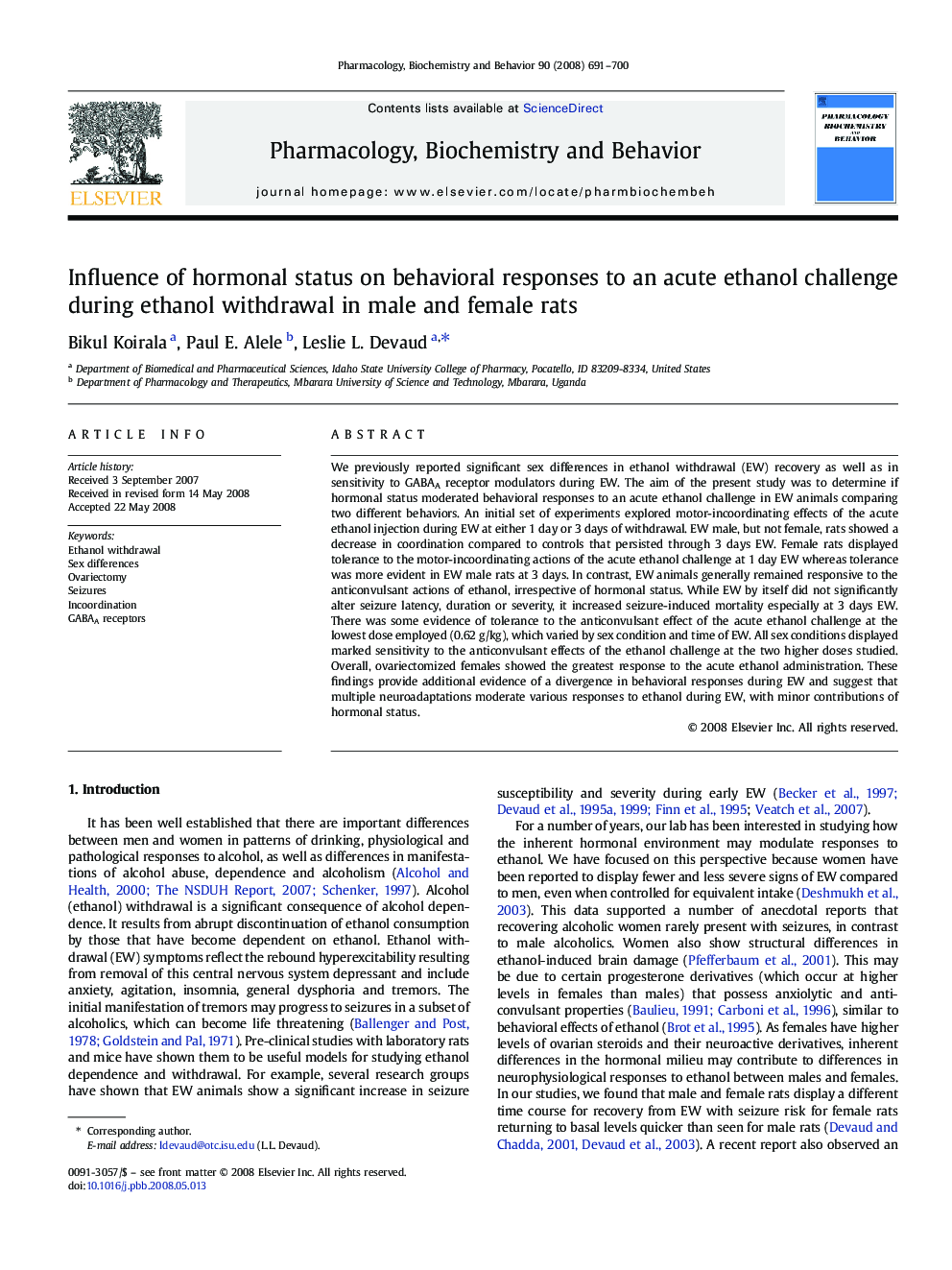| Article ID | Journal | Published Year | Pages | File Type |
|---|---|---|---|---|
| 2013327 | Pharmacology Biochemistry and Behavior | 2008 | 10 Pages |
Abstract
We previously reported significant sex differences in ethanol withdrawal (EW) recovery as well as in sensitivity to GABAA receptor modulators during EW. The aim of the present study was to determine if hormonal status moderated behavioral responses to an acute ethanol challenge in EW animals comparing two different behaviors. An initial set of experiments explored motor-incoordinating effects of the acute ethanol injection during EW at either 1Â day or 3Â days of withdrawal. EW male, but not female, rats showed a decrease in coordination compared to controls that persisted through 3Â days EW. Female rats displayed tolerance to the motor-incoordinating actions of the acute ethanol challenge at 1Â day EW whereas tolerance was more evident in EW male rats at 3Â days. In contrast, EW animals generally remained responsive to the anticonvulsant actions of ethanol, irrespective of hormonal status. While EW by itself did not significantly alter seizure latency, duration or severity, it increased seizure-induced mortality especially at 3Â days EW. There was some evidence of tolerance to the anticonvulsant effect of the acute ethanol challenge at the lowest dose employed (0.62Â g/kg), which varied by sex condition and time of EW. All sex conditions displayed marked sensitivity to the anticonvulsant effects of the ethanol challenge at the two higher doses studied. Overall, ovariectomized females showed the greatest response to the acute ethanol administration. These findings provide additional evidence of a divergence in behavioral responses during EW and suggest that multiple neuroadaptations moderate various responses to ethanol during EW, with minor contributions of hormonal status.
Related Topics
Life Sciences
Biochemistry, Genetics and Molecular Biology
Biochemistry
Authors
Bikul Koirala, Paul E. Alele, Leslie L. Devaud,
